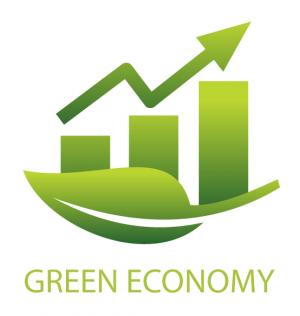The N'hambita Community Carbon Project
Description
Source: World Resources Institute (2011) A Compilation of Green Economy Policies, Programs, and Initiatives from Around the World. The Green Economy in Practice: Interactive Workshop 1, February 11th, 2011
Initiated in 2003, the project pays 1000 smallholder farmers in the buffer zone of the Gorongosa National Park in Sofala Province for sequestering carbon through the adoption of agroforestry practices and for reduced emissions from deforestation and degradation (REDD) of miombo woodlands. The European Union provided core funding for the project from 2003-2008. Technical assistance was provided by Envirotrade, the Edinburgh Centre for Carbon Management, and the University of Edinburgh School of GeoSciences. Farmers are contracted to sequester carbon on their farmlands through adoption of agroforestry practices from a "menu" that includes horticultural tree species, woodlots, intercropping food crops with Faidherbia albida, planting native hardwoods around the boundary of the machambas, and planting fruit trees within the homestead. The N'hambita Community Carbon Project is serving as a demonstration model which will be replicated in other areas both within and outside of Mozambique.
The benefits of the project are as follows:
- A minimum of two-thirds of carbon credit sales revenues are to be returned to the local community in the form of contracted payments to farmers and community activities and payment for in-country services;
- Prevention of the release or sequestered more than 250,000 tons of carbon dioxide;
- Restoration and protection of more than 10,000 hectares;
- Increased project opportunities for carbon buyers.
SDGS & Targets
Goal 8
Promote sustained, inclusive and sustainable economic growth, full and productive employment and decent work for all
8.1
8.1.1
Annual growth rate of real GDP per capita
8.2
Achieve higher levels of economic productivity through diversification, technological upgrading and innovation, including through a focus on high-value added and labour-intensive sectors
8.2.1
Annual growth rate of real GDP per employed person
8.3
Promote development-oriented policies that support productive activities, decent job creation, entrepreneurship, creativity and innovation, and encourage the formalization and growth of micro-, small- and medium-sized enterprises, including through access to financial services
8.3.1
Proportion of informal employment in total employment, by sector and sex
8.4
Improve progressively, through 2030, global resource efficiency in consumption and production and endeavour to decouple economic growth from environmental degradation, in accordance with the 10-Year Framework of Programmes on Sustainable Consumption and Production, with developed countries taking the lead
8.4.1
Material footprint, material footprint per capita, and material footprint per GDP
8.4.2
Domestic material consumption, domestic material consumption per capita, and domestic material consumption per GDP
8.5
8.5.1
Average hourly earnings of female and male employees, by occupation, age and persons with disabilities
8.5.2
Unemployment rate, by sex, age and persons with disabilities
8.6
8.6.1
Proportion of youth (aged 15-24 years) not in education, employment or training
8.7
Take immediate and effective measures to eradicate forced labour, end modern slavery and human trafficking and secure the prohibition and elimination of the worst forms of child labour, including recruitment and use of child soldiers, and by 2025 end child labour in all its forms
8.7.1
Proportion and number of children aged 5‑17 years engaged in child labour, by sex and age
8.8
Protect labour rights and promote safe and secure working environments for all workers, including migrant workers, in particular women migrants, and those in precarious employment
8.8.1
Fatal and non-fatal occupational injuries per 100,000 workers, by sex and migrant status
8.8.2
Level of national compliance with labour rights (freedom of association and collective bargaining) based on International Labour Organization (ILO) textual sources and national legislation, by sex and migrant status
8.9
By 2030, devise and implement policies to promote sustainable tourism that creates jobs and promotes local culture and products
8.9.1
Tourism direct GDP as a proportion of total GDP and in growth rate
8.10
Strengthen the capacity of domestic financial institutions to encourage and expand access to banking, insurance and financial services for all
8.10.1
(a) Number of commercial bank branches per 100,000 adults and (b) number of automated teller machines (ATMs) per 100,000 adults
8.10.2
Proportion of adults (15 years and older) with an account at a bank or other financial institution or with a mobile-money-service provider
8.a
8.a.1
Aid for Trade commitments and disbursements
8.b
By 2020, develop and operationalize a global strategy for youth employment and implement the Global Jobs Pact of the International Labour Organization
8.b.1
Existence of a developed and operationalized national strategy for youth employment, as a distinct strategy or as part of a national employment strategy
SDG 14 targets covered
Deliverables & Timeline
Resources mobilized
Partnership Progress
Feedback
Action Network


